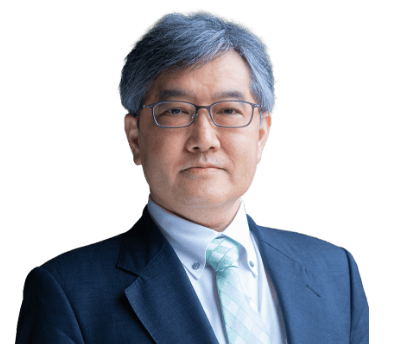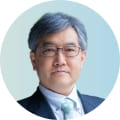MESSAGE

Development of innovative medical systems through
elucidation and manipulation of the interactions
of materials and systems with living bodies
The Department of Bioengineering at the University of Tokyo is engaged in research and education to create future medical systems and industries through the fusion of life sciences and engineering.
The year 2006, when this department was established, was the year when the percentage of the Japanese population aged 65 and overreached the highest level in the world, while the percentage of the population aged 15 and under reached the lowest level in the world. And metabolic syndrome entered the top 10 list of buzzwords. Based on the backdrop of social demands for measures to deal with the pressing issues of an aging population and declining birthrate, as well as the need to prevent illness and extend healthy life expectancy, the Department of Bioengineering was established to meet the demands of the times.
The students of the Department of Bioengineering studied the fundamental subjects as their major discipline (field of specialization) up to the undergraduate period. Based on this academic foundation, we conduct research and education that capture the connections between biology and engineering from a broad perspective, including the biomedical field. As a major that aims to build up this academic theory, the role of bioengineering is extremely significant.
This department allows students to study and master the discipline's vertical axis, which consists of chemistry, life, and materials, and the physical domains of mechanics and electricity, and the horizontal axis of engineering technology, such as devices and imaging. The department plays an important role in biotechnology and has its significance as the keystone of medical engineering collaboration in the Graduate School of Engineering.
In particular, as an engineer who understands medicine, the Department of Bioengineering is focused on medical engineering and implements educational programs based on the viewpoint of the interaction between the human body, materials, and systems. Through these educational activities, we contribute to society by producing medical engineering specialists who can continuously lead the creation of the world's most advanced medical systems. Furthermore, the department is not limited to fields closely related to medical engineering but is capable of pursuing more fundamental and principled academic principles and basic sciences related to biotechnology and engineering.
Let us work together to create the next generation as a bridge to 2026, the 20th anniversary of the establishment of the department.
Head of the Department of Bioengineering,
Professor,
Hitoshi Tabata

Head of the Department of
Bioengineering, Professor,
Hitoshi Tabata
 © Department of Bioengineering School of Engineering, The University of Tokyo All Rights Reserved
© Department of Bioengineering School of Engineering, The University of Tokyo All Rights Reserved
